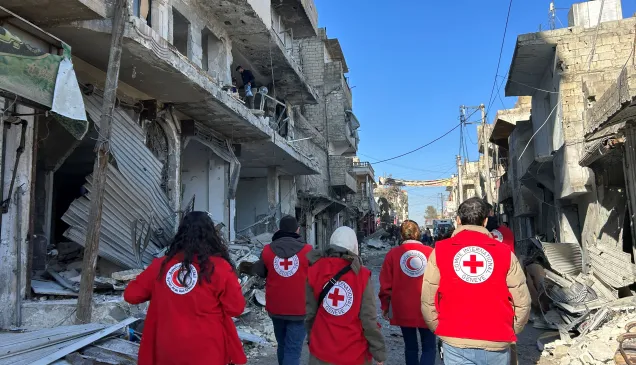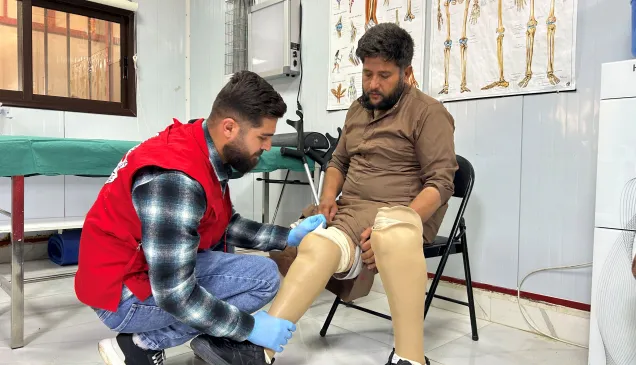Syria water crisis: Up to 40% less drinking water after 10 years of war
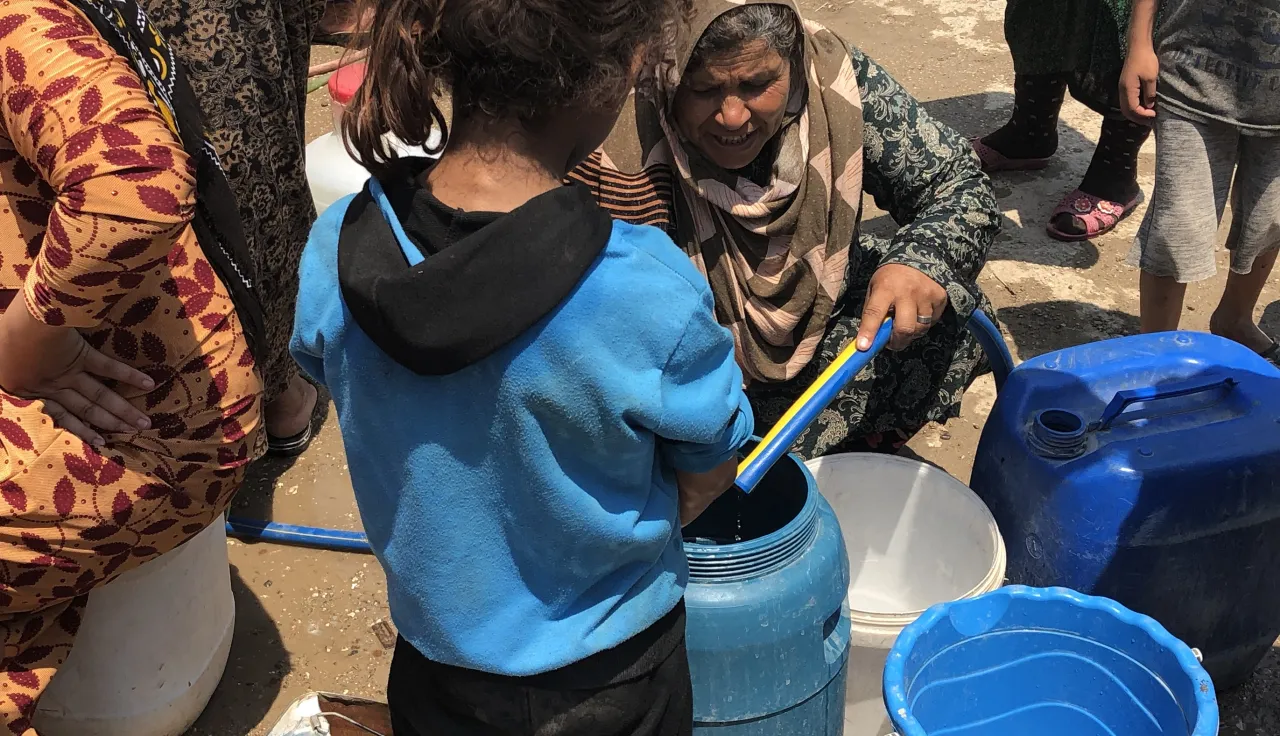
More than ten years of conflict in Syria has resulted in widespread destruction of water facilities across the country. Access to safe drinking water is a challenge affecting millions of people across Syria, which now has up to 40 per cent less drinking water than a decade ago.
More than ten years of conflict has severely compromised access to essential services in Syria, including access to safe water. Before 2010, 98 per cent of people in cities and 92 per cent of people in rural communities had reliable access to safe water. Today, the situation is starkly different: only 50 per cent of water and sanitation systems function properly across Syria.
The triggers of the water crisis are layered and complex, but one thing is clear: they are the direct and indirect consequences of the ongoing conflict.
Systems were damaged by violence, proper maintenance couldn't be performed, and in some cases, utilities lost between 30 per cent to 40% of the technical staff and engineers needed to keep systems functioning. Many left the country, while others retired without being able to coach and transfer knowledge to a younger generation.
"The large and very centralized drinking water facilities of Syria's eight main water systems have all been severely affected by the hostilities. They further deteriorated over the past decade due to the lack of proper operation and maintenance, lack of spare parts and human resources,''
— Christophe Martin, head of the ICRC's delegation in Syria.
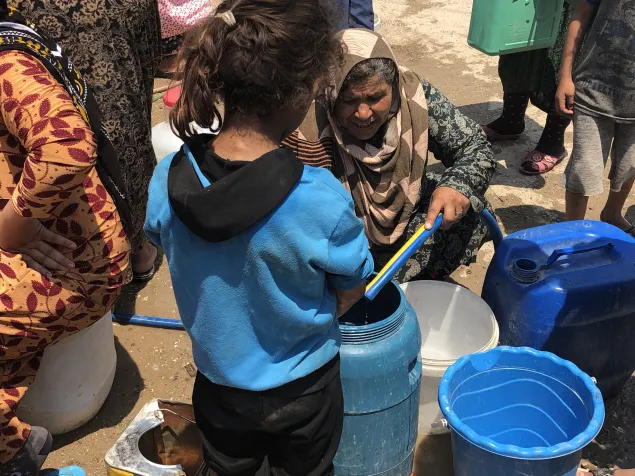
In Hassakeh, transporting water containers is a common scene and a daily task for children. Natalie BEKDACHE/ICRC
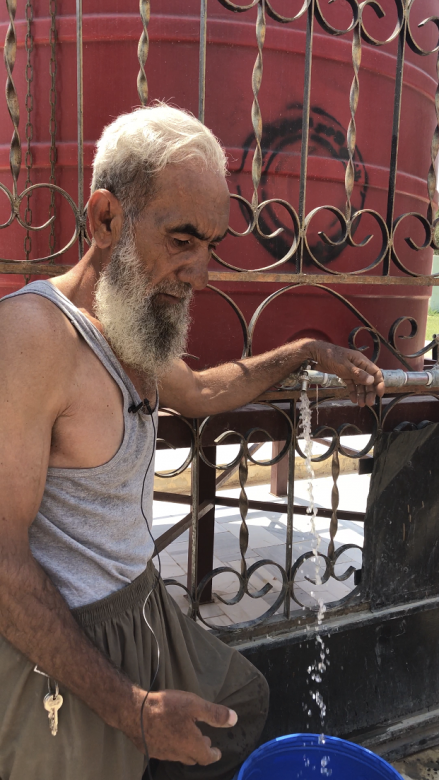
Tawfik, 60 years old, at a water trucking distribution point in Hassakeh.
Natalie BEKDACHE/ICRC
Local systems providing essential services such as access to water, electricity and health care are interconnected, and any failure in one area impacts the others. Without power, access to water is jeopardized and health facilities are negatively affected. All functioning water supply infrastructure depend on electricity in a context where the power generation capacity is down by 60 per cent to 70 per cent.
Water scarcity has led to greater instability, especially in areas heavily impacted by the conflict such as northeast Syria, an area that continues to host a significant number of IDPs who fled areas affected by hostilities, in addition to long-term refugees from Iraq, and stranded women and children from more than 60 countries in camps like Al-Hol.
Tawfik, a 60-year old man from Hassakeh told us that the majority of people in his governorate, including him, need water urgently. "Digging wells only brings up water contaminated with sewage that is not drinkable and cannot be used for washing," he said.
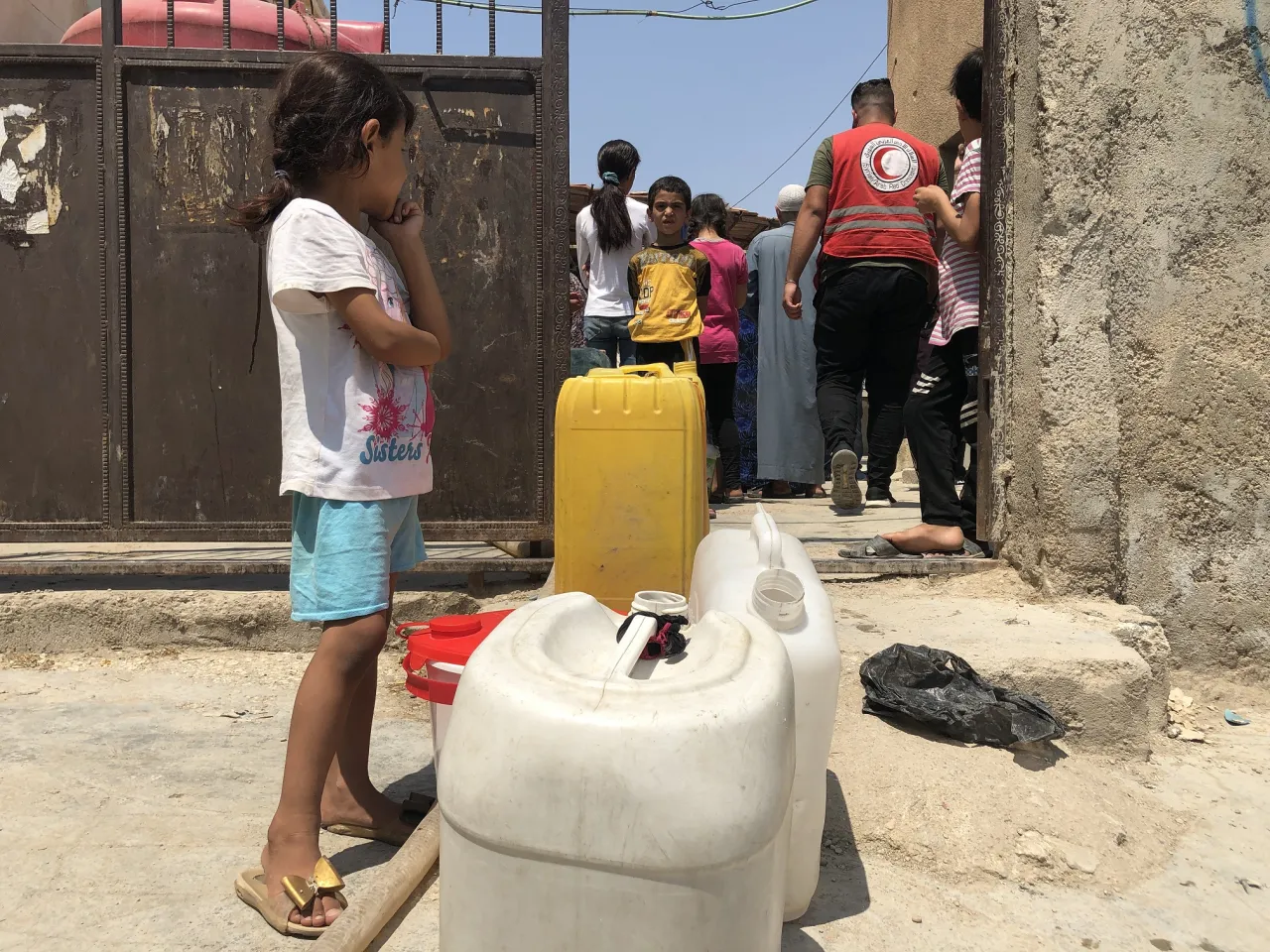
At least 700,000 people in Hassakeh governorate, in northeast Syria, are affected by water shortages on a daily basis.
"The water tanks cover only a small fraction of the consumption of water, especially during the summer, there needs to be a constant flow. If there is no water, there is no life!"
— Mahmoud, a young man living in Hassakeh.
Syria was already experiencing increased water scarcity even before the start of the conflict, due to climate change.
Against this backdrop, it's important to highlight that conflict-affected countries are disproportionately impacted by climate change. The conflict had devastating human and economic consequences, but it has also greatly damaged the environment in Syria.
For example, the wastewater treatment plants that serve Damascus and Aleppo cities were rendered inoperable in 2012 as a result of direct destruction. As a result, wastewater is released untreated into the natural environment, posing grave risks to public health and heavily contaminating groundwater resources.
Before 2010: 98% of people in cities and 92% of people in rural communities had reliable access to safe water.
Today: only 50% of water and sanitation systems function properly across Syria.
The Aleppo power plant is also irremediably destroyed, and it would take at least five years to rebuild this facility under stable conditions.
Like most areas affected by conflict around the world, climate change and environmental degradation are amplified due to the consequences of conflict, and one of the results is a change in the availability and quality of water.
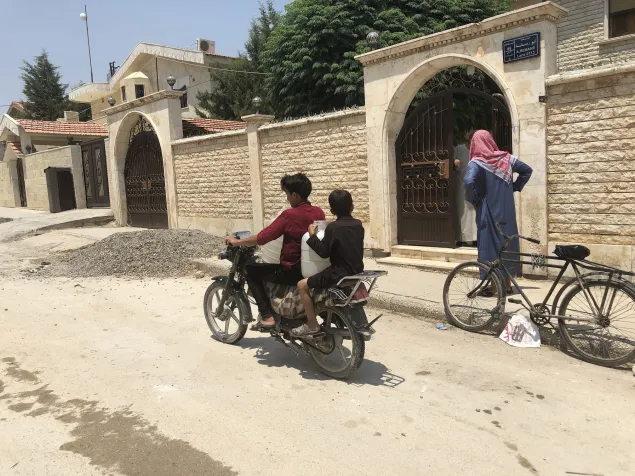
Children transporting water containers on motorbikes in Hassakeh. Natalie BEKDACHE/ICRC
"This is not about having a political divide on reconstruction; this is about finding practical solutions in water, sanitation, education, health, basic electricity, basic income for people,"
— ICRC President Peter Maurer during a recent visit to Syria.
For the past ten years, the ICRC has carried out thousands of engineering projects, both responding to emergencies and providing sustained support to local service providers to stem the decline in service delivery.
During the first half of 2021, the ICRC and Syrian Arab Red Crescent have carried out hundreds of projects across the country, that allowed over 15 million people to have access to safe water by rehabilitating several water pumping stations in the areas most affected by the conflict.
Parts of these projects enabled hundreds of farmers to irrigate their lands, as agriculture is one of the main sources of income in a context deeply impacted by a declining economy, and where 80 per cent of the population are living under the poverty line.
The ICRC has continuously called for the protection and preservation of critical infrastructure, in line with international humanitarian law. But the unprecedented size of the challenges faced today to address this humanitarian imperative calls for a greater level of engagement, financial and political, of a more diversified set of actors, including humanitarian organizations, development agencies and the private sector.
For more information, please contact:
Adnan Hezam (Damascus): ahizam@icrc.org or
+9631133806205
Imene Trabelsi (Beirut): itrabelsi@icrc.org or
+961 3 13 83 53
Jason Straziuso (Geneva): jstraziuso@icrc.org or
+41227302077

